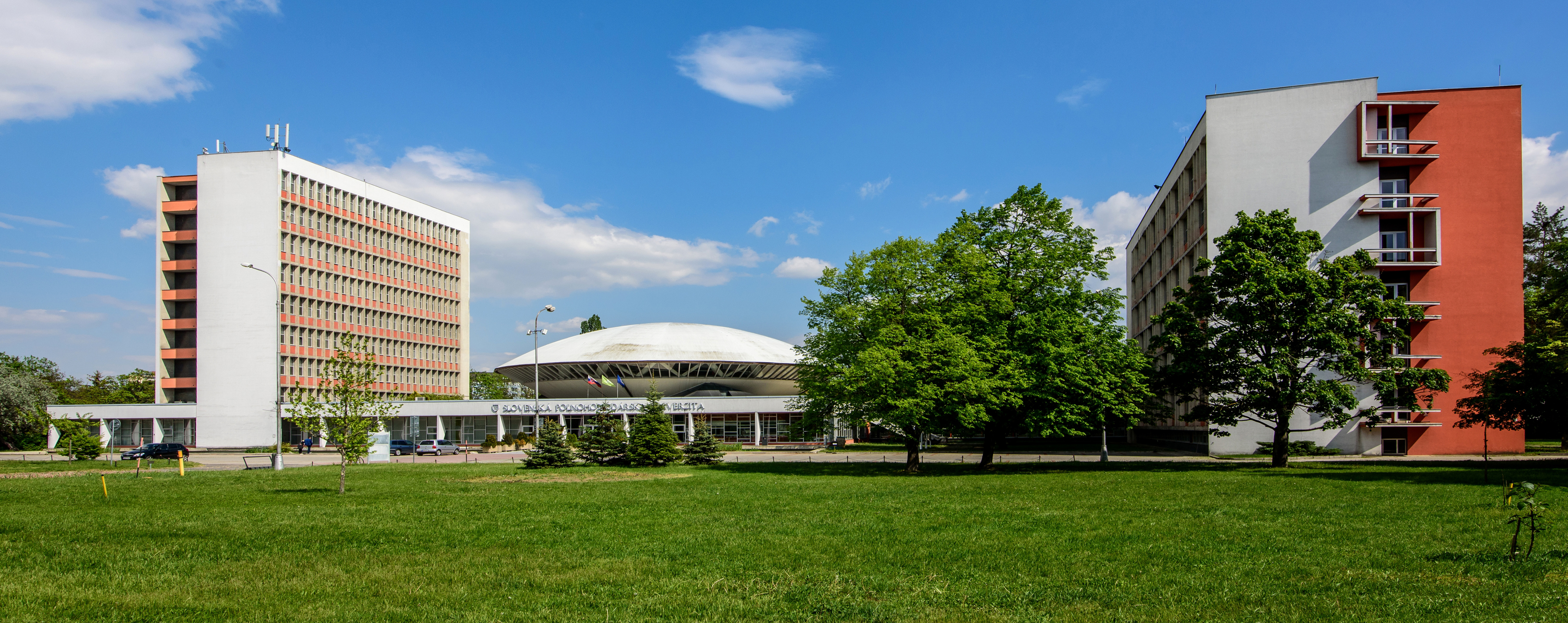EPPN 2020: European Plant Phenotyping Network 2020
EPPN2020 will provide European public and private scientific sectors with access to a wide range of state-of-the-art plant phenotyping facilities, techniques and methods. It will aid the community in progressing towards excellence across the whole phenotyping pipeline, involving sensors and imaging techniques, data analysis in relation to environmental conditions, data organization and storage, data interpretation in a biological context and meta-analyses of experiments. It builds upon the starting community project EPPN and will coordinate its activities with the ESFRI infrastructure EMPHASIS and with national programs.
EPPN2020 involves:
- Access to 31 key installations (15 infrastructures), chosen for excellence and avoidance of redundancy, with capacity of hundreds of genotypes and dedicated to innovative non-invasive measurement of traits at different levels of plant organization.
- Three Joint Research Activities. JRA1 develops novel techniques and methods for environmental and plant measurements, in particular for assessing the spatial variability of environmental conditions in each platform. JRA2 develops tools for statistical analysis of phenotyping experiments across platforms and scales of plant organization. JRA3 develops a European Phenomic Information System, based on novel information technologies and standardization strategies.
- Networking Activities. NA1 organises access and selection of projects, NA2 establishes cooperation and increases integration between facilities both within and outside EPPN2020.
EPPN2020 (i) extends the infrastructure offered to the community; (ii) develops synergies between infrastructures and cross fertilization between disciplines, via common experiments in JRAs; (iii) builds a European information system to manage the information generated by installations, with an open data strategy; (iv) provides training at all career levels; (v) is closely linked with industry, both SMEs providing technology and breeding companies.
BioMonitor: Monitoring the Bioeconomy
The overall objective of the Monitoring the Bioeconomy (BioMonitor) project is to establish a sustainable data and modelling framework for the bioeconomy. This will be achieved by developing and implementing a data and modelling framework that is effective (supported by a stakeholders’ platform) and robust (implementable in existing systems of statistical and customs offices, laboratories and industries). The framework will enable quantification of the bioeconomy and its economic, environmental and social impacts in the EU and its Member States. Interlinks with current CEN standardisation work related to bio-based products will be established from the outset of the project. The contributions of BioMonitor are threefold. First, the project will close the data gaps in measuring the bioeconomy by updating and enhancing currently used data sets. BioMonitor will assure the inclusion of new emerging bio-based products and industries by developing appropriate tools and strategies. Second, the improved data will be used to enhance established and new modelling tools, linked in the BioMonitor toolbox, to guide industries and governments responsible for the execution of consistent, coherent and longer term strategies with desirable consequences for multiple objectives. Third, a BioMonitor platform for stakeholder engagement and training will be created to design, test (by industry-based and country-level case studies) and disseminate results of the improved datasets and modelling capacity. The platform will inform the formulation of strategies and policies directing the bioeconomy to achieve its economic, environmental and social policy objectives according to the EC Bioeconomy Strategy and Action Plan. The awareness about the importance of measuring the bioeconomy within the industry will be raised through tailored training on bioeconomy standards and measurement of sustainability indicators targeted towards SMEs within the sector.
POWER4BIO: emPOWERing regional stakeholders for realising the full potential of european BIOeconomy
Setting the foundations for Europe’s bioeconomy
The danger posed by climate change has led governments and organisations to seek out novel green solutions that could help hinder its effects. Unfortunately, transitioning into a bioeconomy isn’t easy for most stakeholders, and there’s no set methodology available. The EU-funded POWER4BIO project aims to change this by presenting regional stakeholders with the necessary instruments and methods to bring sustainable bioeconomy strategies. As such, it will develop a 3-step approach that guides and examines regional bioeconomy strategies. Furthermore, the project will provide several bio-based models and recommendations and foster communication, collaborative learning and research transfers.
PoliRural: Future Oriented Collaborative Policy Development for Rural Areas and People
Action for the future of rural populations
The landscape of rural areas is changing rapidly. Some changes are invisible yet irreversible, such as shrinking rural populations or biodiversity changes. Policymakers need the right tools to address these changes. The EU-funded PoliRural project will provide a comparative assessment of challenges facing rural areas and people, as well as measures adopted by regional actors to tackle them. It will bring together decision-makers, experts and rural inhabitants and will use advanced policy simulation tools to better understand and tackle regional challenges, ultimately making rural areas and professions more attractive and livable for established populations and recent or potential newcomers.
IN HABIT: INclusive Health And wellBeing In small and medium size ciTies
Fostering health and wellbeing: strengthening bonds in medium and small cities
Access to health and wellbeing may be difficult for people due to their gender, disabilities or minority status, and especially if they live in a peripheral small town or city. To solve this problem, modern approaches are needed to integrate communities and achieve inclusive health and well-being. With this in mind, the EU-funded IN-HABIT project aims to design integrative actions that will be shaped according to the needs of local vulnerable groups in four cities: Cordoba (Spain), Riga (Latvia), Lucca (Italy), and Nitra (Slovakia). They will be based on culture, food, art and bonds with nature and animals combined with technological and digital means. IN-HABIT will be supported by the city of Bogotá’s (Columbia) former experiences.
FOODRUS: An Innovative Collaborative Circular Food System to Reduce Food Waste and Losses in the Agri-food Chain
Creating new links in EU food chains
Reducing food waste is one of the main challenges in our society and one which must be addressed jointly by all the actors involved in the food supply chain systems. It is therefore important to reduce inefficiencies while reinforcing transparency and networking. The EU-funded FOODRUS project will develop an innovative, collaborative and circular food system to reduce food waste and losses in the agri-food chain. Its strategy is aimed at preventing food waste in a circular economy. Specifically, it will deploy 23 technological, social, financial, legal, educational, political, labelling and organisational solutions involving the mobilisation and participation of farmers, retailers, consumer associations and numerous stakeholders of the entire food chain. The focus is on vegetables in Spain, meat and fish in Denmark and bread in Slovakia.
COMFOCUS: Communities on Food Consumer Science
Exploring Food Consumer Science on a European scale
The EU-funded COMFOCUS project will examine key national and regional research infrastructures in the field of food consumer science. Its mission is to advance the food consumer science community beyond its current level of fragmentation that is preventing it from being the data-rich science area contributing to the societal problem of (un-)healthy food choices. As a library of metadata and digital service tools, the COMFOCUS knowledge platform will be an easily accessible focal point for all European researchers within the principles of FAIR and the responsible research and innovation data use. Steps include a coordinated set of activities on networking, joint research and transnational and virtual access to key research infrastructures. Outcomes will be disseminated and supported by a stakeholder forum.
Algae4IBD: Algae4IBD – From Nature to Bedside - Algae Based Bio Compound for Pprevention and Treatment of Inflammation, Pain and IBD
Diving deep to find anti-inflammatory algae
What if the solution for a chronic disease lies in our ocean, rivers, or lakes? The EU-funded Algae4IBD project will answer this question. Studying compounds from marine and freshwater micro and macroalgae (seaweed) from lab/pilot to market scale, the project will comprehensively research means to transform aquatic natural biological resources into biologically active compounds for the prevention and treatment of inflammatory bowel disease (IBD). Specifically, it will develop algae-based compounds while ensuring algae biodiversity preservation through pioneering cultivation and extraction technologies. Algae4IBD proposes innovative solutions to sustainably use algae-based products with improved nutritional quality to positively impact IBD patients.
INVEST4EXCELLENCE: Invest for Excellence in Regional Sustainability
An integrated strategy for regional sustainable development
The INVEST EU University Alliance of five European universities focuses on sustainable development. The EU-funded INVEST4EXCELLENCE project will develop an integrated and long term joint strategy for research and innovation (R[&]I) in line with the education strategies of the Alliance. It will create the background for the development and implementation of R[&]I ideas developing a model for institutional transformation, the European Innovation Ecosystem for Academia-Business [&] Society, Capacity Building Tools, and implementing and promoting the I-EDUC8EU tool. The project will engage regional actors as a precondition for performing the research and bringing innovation into the regions and deliver several key enabling technologies to optimise the R[&]I aspects promoted by the Alliance.

